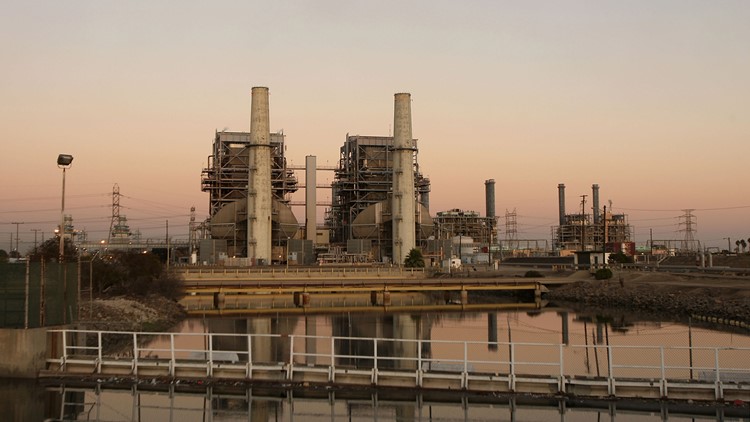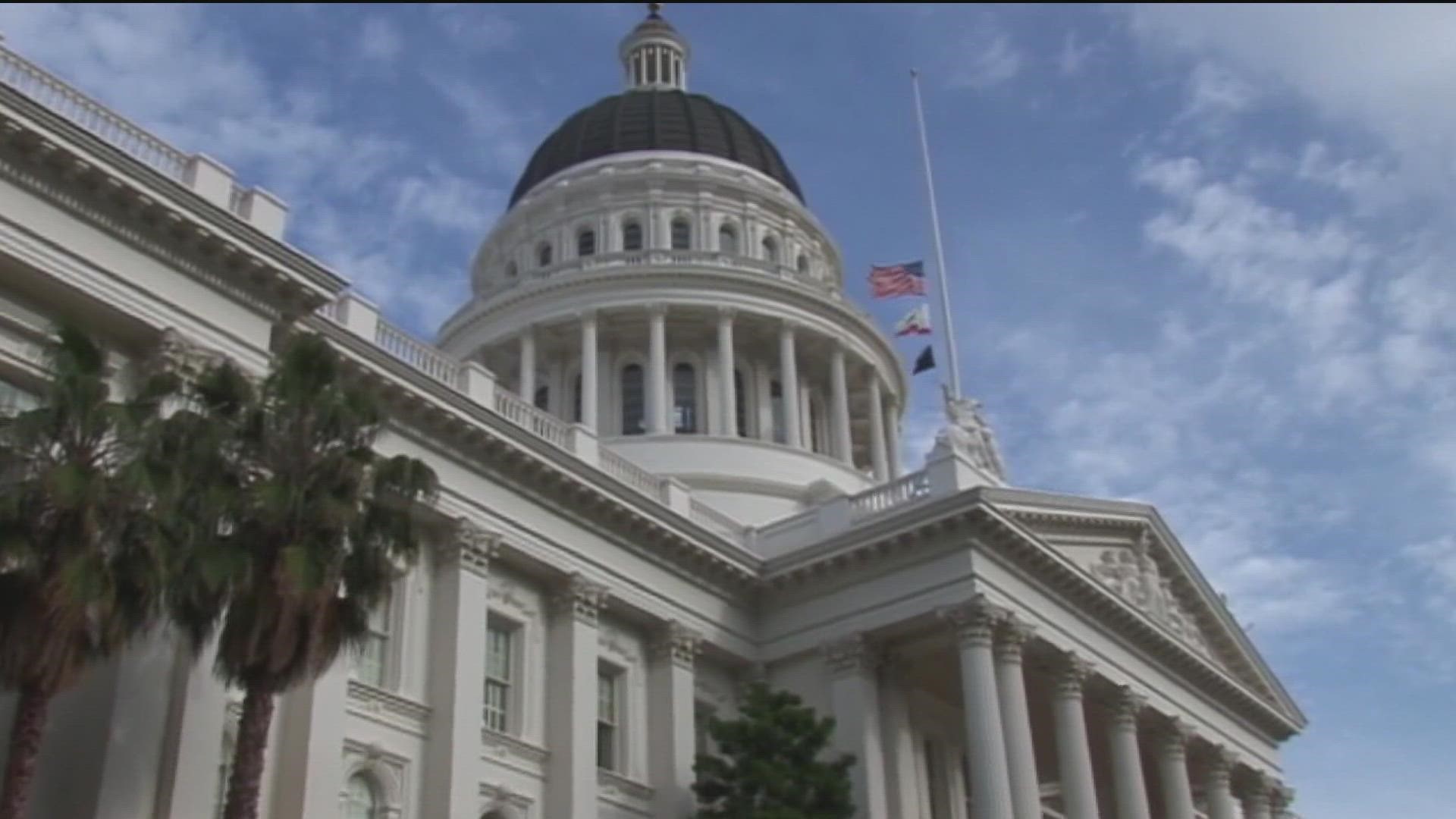CALIFORNIA, USA — This story was originally published by CalMatters.
The expansive energy bill that so angered clean-energy advocates and city and county officials — negotiated last week behind closed-doors — was softened somewhat over the weekend, restoring oversight of new energy projects to some critical state agencies.
But those hard-won concessions were nearly negated late Sunday night as Gov. Gavin Newsom’s administration added an entirely new and unexpected section. It reopened the heated debate over the trailer bill, intended, in part, to prop up California’s overstretched power grid.
While the bill’s earlier version greatly expanded the authority of the state’s Energy Commission to site and quickly approve electric power projects, the new language does the same for the state Department of Water Resources. It would put the agency squarely in the energy business, giving it authority not only to buy power on the energy market, which it already does, but also to “construct, own and operate” power plants.
The new section of the bill fails to mirror the accountability and compliance changes to other aspects of the legislation, made after intense pressure. Those changes include a requirement for public meetings and a role for local planning agencies to comment on, but still have no authority over, power projects.
In addition, agencies such as the California Coastal Commission, the Department of Toxic Substances Control, the State Lands Commission, state and regional water boards and the San Francisco Bay Conservation and Development Commission, and regional air boards regained their jurisdiction or oversight over aspects of the Energy Commission’s decisions.
The latest provision, which required writing a new section into the California Water Code, would remove jurisdiction of nearly all state and local agencies from the process and it would not require compliance with existing state or local environmental laws. The proposed law would give the water agency broad prerogative to construct and operate power facilities anywhere it chooses, including sensitive coastal areas under the jurisdiction of the Coastal Commission.
The budget sets aside some $700 million to the Department of Water Resources to facilitate this new authority.
Advocates for renewable energy and state and local governments were caught by surprise by the changes, which only came to light as the bill was published late Sunday night. Today they were critical of the inconsistency: “repairing” one aspect of the legislation to tighten environmental oversight and preserve public inclusion in energy development decisions, but then adding new provisions carrying none of those requirements for accountability or transparency.
“It’s a massive shift, a game-changer,” said Kim Delfino, an environmental consultant. “This is a carte blanche approach — you can do this and you are not accountable to anyone. No daylight, no discussion. This was too massive a policy decision to be kept behind closed doors.”
Overall, the proposed legislation is a broad attempt to streamline approval of solar, wind and geothermal projects, while scaling back reliance on fossil fuels.
But the state’s policy would prolong use of some natural-gas power plants, which are now scheduled to begin going offline next year. State officials already had delayed the closures by three years.
The legislation attempts to address the reliability of California’s power supply during extreme weather and wildfires, suggesting that renewable energy sources are not yet sufficient to keep the lights on. But relying on aging fossil fuel plants is hardly a guarantee — a number of gas plants failed during last summer’s heat wave.
The bill could allocate billions to fossil fuel power sources, including to retrofit highly polluting diesel backup generators and keep gas power plants in operation. Those moves appear to backpedal on California’s pledge to wring carbon from the state’s power grid in the coming decades in an effort to battle climate change.
“This budget agreement kicks the can down the road in the climate fight,” said Mike Young, political director of California Environmental Voters, in a statement. “The energy trailer bill sets a dangerous precedent and could undermine the state’s ultimate goal of building a clean, reliable electric grid that provides power to every community that needs it.”
WATCH RELATED: Inside a wind farm producing renewable energy for San Diego County (Jun 20, 2022)



